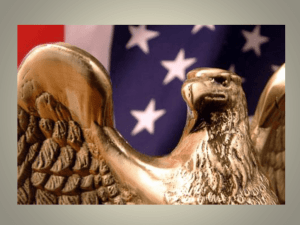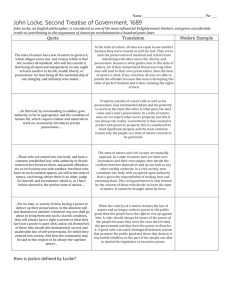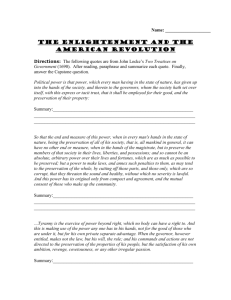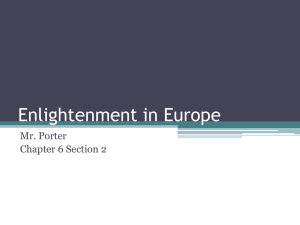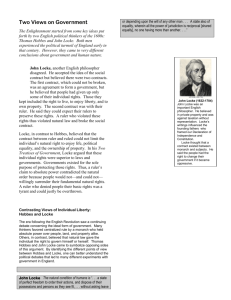John Locke Reading Assignment
advertisement
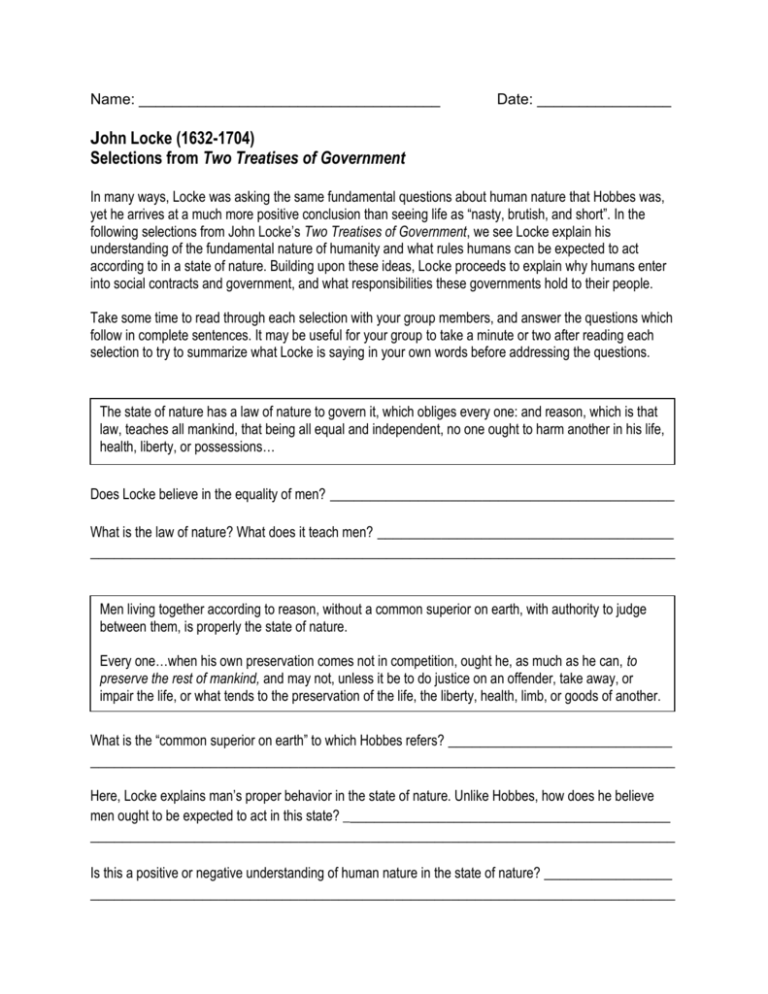
Name: ____________________________________ Date: ________________ John Locke (1632-1704) Selections from Two Treatises of Government In many ways, Locke was asking the same fundamental questions about human nature that Hobbes was, yet he arrives at a much more positive conclusion than seeing life as “nasty, brutish, and short”. In the following selections from John Locke’s Two Treatises of Government, we see Locke explain his understanding of the fundamental nature of humanity and what rules humans can be expected to act according to in a state of nature. Building upon these ideas, Locke proceeds to explain why humans enter into social contracts and government, and what responsibilities these governments hold to their people. Take some time to read through each selection with your group members, and answer the questions which follow in complete sentences. It may be useful for your group to take a minute or two after reading each selection to try to summarize what Locke is saying in your own words before addressing the questions. The state of nature has a law of nature to govern it, which obliges every one: and reason, which is that law, teaches all mankind, that being all equal and independent, no one ought to harm another in his life, health, liberty, or possessions… Does Locke believe in the equality of men? ___________________________________________ What is the law of nature? What does it teach men? _____________________________________ _________________________________________________________________________ Men living together according to reason, without a common superior on earth, with authority to judge between them, is properly the state of nature. Every one…when his own preservation comes not in competition, ought he, as much as he can, to preserve the rest of mankind, and may not, unless it be to do justice on an offender, take away, or impair the life, or what tends to the preservation of the life, the liberty, health, limb, or goods of another. What is the “common superior on earth” to which Hobbes refers? ____________________________ _________________________________________________________________________ Here, Locke explains man’s proper behavior in the state of nature. Unlike Hobbes, how does he believe men ought to be expected to act in this state? _________________________________________ _________________________________________________________________________ Is this a positive or negative understanding of human nature in the state of nature? ________________ _________________________________________________________________________ Political power is that power which every man, having in the state of nature, has given up into the hands of the society, and therein to the governors whom the society hath set over itself, with this express or tacit trust that it shall be employed for their good and the preservation of their property…And this power has its origin only from compact, and agreement, and the mutual consent of those who make up the community... What is political power? ________________________________________________________ _________________________________________________________________________ Why do men willingly give up their political power? As we learned in class, what is this kind of relationship called? ___________________________________________________________________ _________________________________________________________________________ Where does the government get its authority? __________________________________________ _________________________________________________________________________ Does a divine right monarchy derive its power in this way? ________________________________ Does a democracy? __________________________________________________________ The reason why men enter into society is the preservation of their property… Whenever the legislators endeavor to take away and destroy the property of the people, or to reduce them to slavery under arbitrary power, they put themselves into a state of war with the people, who are thereupon absolved from any further obedience and are left to the common refuge [i.e., rebellion]… Whensoever therefore the legislative shall transgress this fundamental rule of society… by this breach of trust they forfeit the power the people had put into their hands… In what way should a governing body never act towards its people? ___________________________ _________________________________________________________________________ Give an example of a government that has acted in this way: _______________________________ _________________________________________________________________________ If a government does act in this way, what do you think Locke would argue its people ought to do? ______ _________________________________________________________________________




